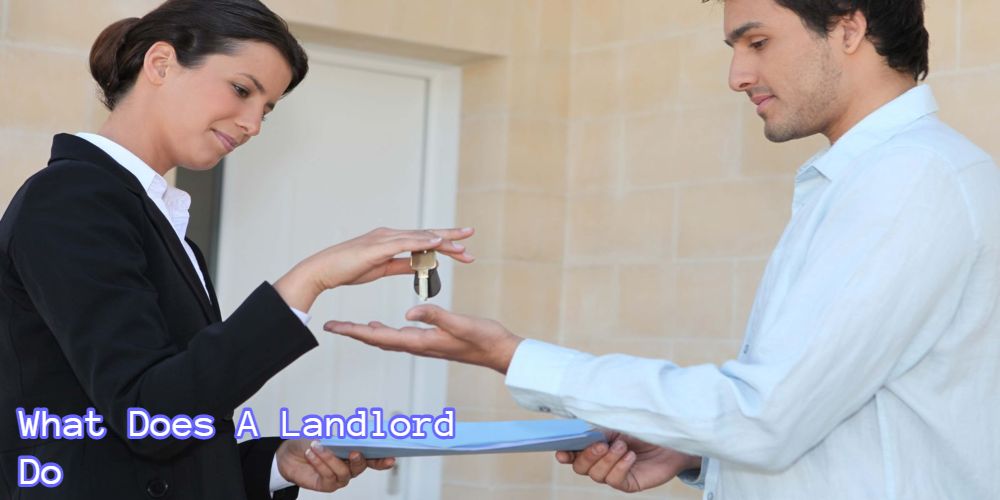Last Updated on January 4, 2022 by Kelvin Nielsen
Thinking of becoming a landlord? If so, that could be a great move!
Real estate remains one of the world’s most favorite ways of making money. For one, it’s a passive source of income and, done right, it can help you create significant wealth. Typically, the value of a property (as well as rent) tends to increase over time. So, you can expect to earn more from your investment as the years go by.
That said, real estate isn’t just about acquiring the investment property and letting the money roll in. No, as a landlord, you’ll have a lot on your plate. And it isn’t just the basics such as finding tenants, treating them right, and collecting rent – there’s more to landlording. And if you are to run a successful landlording career, you must understand your responsibilities well.
If you don’t know what the duties of a landlord are, this article is for you. Here’s what a landlord does.
Ensuring the Property Is Habitable
As a landlord, it’s your responsibility to ensure that your tenants are living in habitable conditions. A habitable apartment is one that’s safe and comfortable to live in and complies with the government’s health and safety codes. As per federal and state laws, an apartment must have the following qualities to be considered habitable:
- A well-maintained floor that has no holes.
- Walls, windows, doors, and a ceiling that doesn’t leak.
- Functional and leak-free plumbing.
- Gas, heating, and cooling.
- A safe and working electric connection.
- No pests.
For some towns, a home inspector may have to inspect your property for habitability before a tenant moves in. If it is habitable, they’ll issue you with a certificate of habitability (Sometimes termed as a certificate of occupancy).
Now, the frequency of inspection will vary from town to town. While some will only inspect when the first tenant moves in, others will do it every five years. And for some strict towns, your rental property will be inspected every time a new tenant moves in.
If you are renting to section 8 tenants, you should brace yourself for even stricter inspections. For this lot, only a section 8 inspector can do the inspection. What’s more, they’ll inspect the unit every year the tenant rents it.
Ensuring Sufficient Security
It’s also your duty as a landlord to keep your tenants safe from crime. While it makes them feel secure, it’s also a great trick to make them rent long-term. Some of the things you can do to secure your rental property include:
- Installing proper lighting. You can prevent crime by lighting indoors and outdoors brightly. Indoor areas that you need to light include hallways and stairwells. As for the outdoors, ensure the front and backyard are well illuminated. Motion-sensing lights can go a long way in securing your outdoors.
- Securing doors. You want to ensure that all entry and exit doors are foolproof. The most obvious thing you can do to achieve this is to only install doors made of sturdy, heavy-duty material. Also, you can add deadbolt locks and chain locks.
- Securing windows. Adding some locks or security bars will make the windows burglar-proof.
- Screening prospective tenants thoroughly. Insiders can also perpetrate crimes. By renting to tenants with a clean criminal background only, you can keep crimes like theft and assault at bay.
- Installing security cameras. Security cameras in common areas such as entrances, stairwells, hallways, among others, can also tighten the security.
- Installing an alarm system. Have a security system wired into all units. This will make tenants feel safer. The good about an alarm system is that all tenants don’t have to pay for it. Only those who feel its importance will pay.
- Hiring a security company. What can provide better security than a human? However, this will only make sense if your property has a significant number of units. There is no point in getting a two-apartment property secured by a guard.
Staying on top of Repairs
Your tenants will reach out to you once in a while to request repairs. It’s in your best interest to make those repairs as soon as possible. In particular, if the damages make the unit inhabitable or pose a safety hazard, you should act within 24 hours. However, if they aren’t necessarily an emergency, a 48-hour period will serve the tenant just right.
Now, it’s important to make timely repairs because there could be consequences if you don’t. In some states, for instance, a tenant can withhold the rent if you don’t make repairs. In addition, they can contract a third party to tackle the repairs then deduct the cost from the rent. This is often referred to as ‘repair and deduct’.
While making repairs, ensure you follow the policies regarding entering the rented unit. In most states, you must give a 24-hour prior notice to tenants before entering their rented premises. The only exception to this is if it’s an emergency.
Maintaining the Property
While the law doesn’t require you to do regular maintenance, it’s important to keep your property in good condition. For one, since tenants love to live in well-tended places, it could help minimize tenant turnover. Also, vacancy period could shorten since your rentals will likely attract tenants. You should do maintenance both on the interior and exterior.
On the interior:
- Flush the water heater and rid it of any dirt.
- Ensure the smoke detector works.
- Regularly clean the filters of the heating and cooling system to ensure it functions as it should.
- Routinely check the plumbing to ensure it works and there are no leaks.
- Tighten door and cabinet handles, locks, knobs, faucets, etc.
- Check for pests and exterminate them.
- Repaint walls for a fresh and clean interior.
On the exterior:
- Clean the roof and get rid of any mold or dead moss.
- Ensure that windows are sealed properly and that there are no gaps.
- Repaint the walls if they look dingy and outdated.
- Spruce up the landscape by mowing the front and backyard and pruning overgrown trees. Even better, hire a landscaper.
A landlord has a myriad of responsibilities. Whether you are a prospective landlord or are already one, knowing your duties is key to your success. Real estate is smooth and lucrative only when done right. Happy landlording!

Hi, I’m Kelvin Nielsen, an experienced landlord and accomplished real estate lawyer. My focus is on answering your questions about renting in the hopes of making your life as a renter or a landlord a bit easier.







